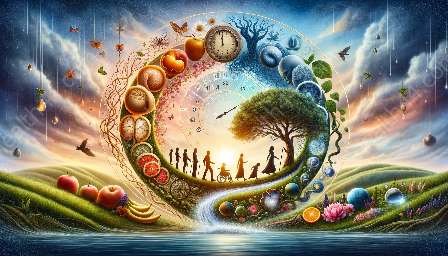As women age, they experience a natural decline in fertility due to various factors. This topic cluster analyzes the impact of aging on women's reproductive health, fertility, and steps to maintain their reproductive well-being as they age.
Understanding Age-Related Fertility Decline
Age-related fertility decline refers to the decrease in a woman's ability to conceive as she gets older. This decline becomes more significant as women approach their late 30s and 40s due to several biological factors.
Factors Contributing to Age-Related Fertility Decline
Several factors contribute to age-related fertility decline in women, including:
- Ovarian Reserve Decline: As women age, the number and quality of their eggs decrease, affecting their ability to conceive.
- Menstrual Irregularities: Aging can lead to changes in menstrual cycles, making it harder to predict ovulation.
- Increased Risk of Chromosomal Abnormalities: Advanced maternal age increases the risk of chromosomal abnormalities such as Down syndrome in offspring.
Reproductive Health in Relation to Aging
Reproductive health in relation to aging encompasses the overall well-being of a woman's reproductive system as she gets older. It involves understanding the impact of aging on fertility and taking steps to maintain reproductive health.
Impact of Aging on Reproductive Organs
With age, women may experience changes in their reproductive organs, such as decreased vaginal elasticity, reduced cervical mucus production, and changes in the uterine lining, which can affect fertility.
Importance of Regular Reproductive Health Check-Ups
As women age, regular reproductive health check-ups become vital to monitor the health of their reproductive system, address any age-related concerns, and receive guidance on maintaining fertility.
Maintaining Reproductive Health as You Age
Healthy Lifestyle Choices
Adopting a healthy lifestyle, including a balanced diet, regular exercise, and avoiding harmful habits like smoking and excessive alcohol consumption, can positively impact reproductive health as women age.
Education and Awareness
Education about fertility and reproductive health at an early age can empower women to make informed decisions about their reproductive well-being as they age.
Fertility Preservation Options
For women who wish to delay childbearing, fertility preservation options such as egg freezing can provide a way to maintain their fertility potential as they age.
Conclusion
Understanding the impact of age-related fertility decline and maintaining reproductive health as women age is crucial for informed decision-making and overall well-being. By staying informed, taking proactive steps, and seeking professional guidance, women can navigate the changes in their fertility and reproductive health as they grow older.


